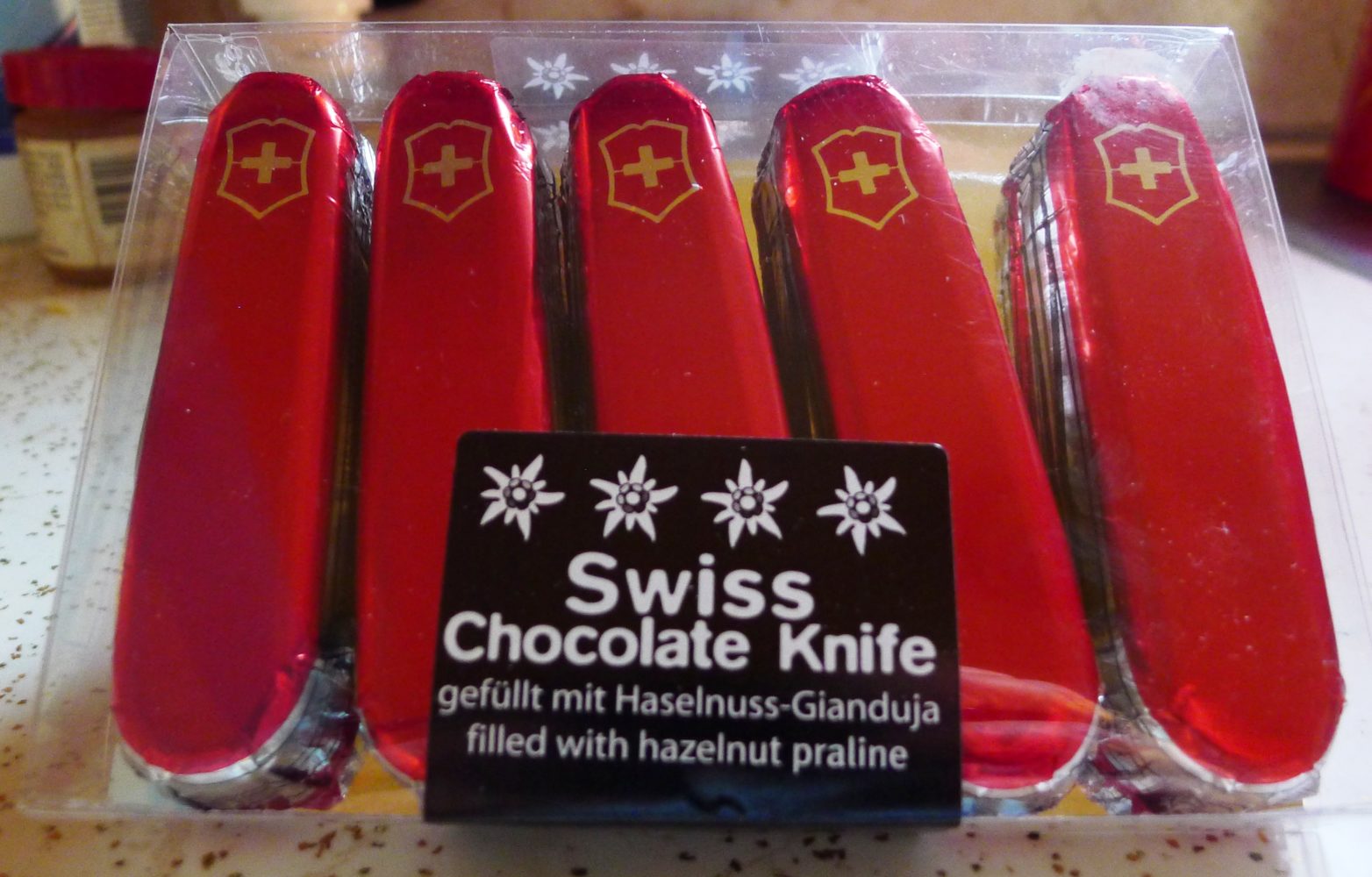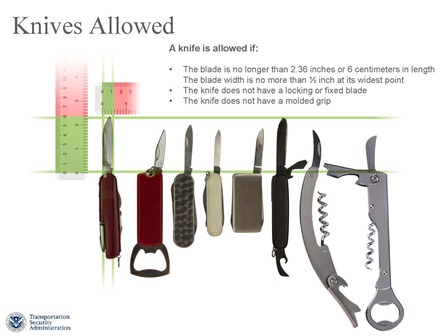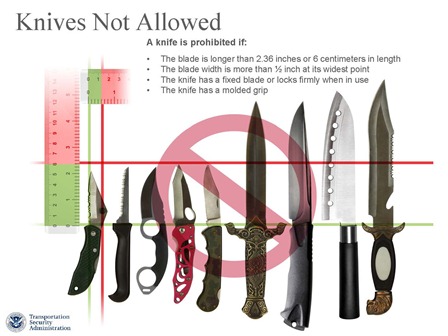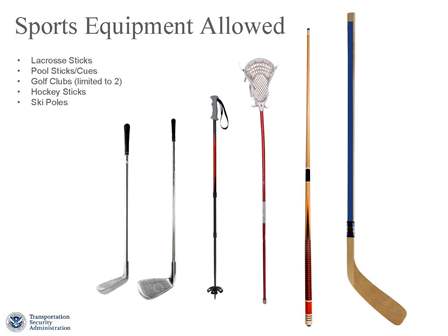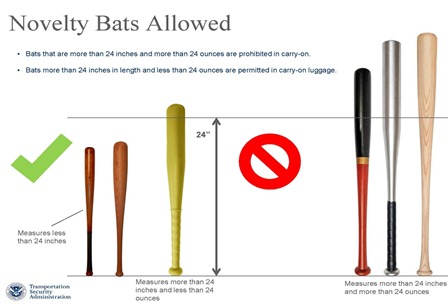For the first time since the 9/11 terror attacks, the Transportation Security Administration (TSA) will allow small knives and some previously prohibited sports equipment onto airplanes as carry-on items.
According to the TSA, passengers will be able to carry-on knives that are less than 2.36 inches long and less than one-half inch wide. Larger knives, and those with locking blades, will continue to be prohibited, as will razor blades and box cutters, guns, firearms, and the dozens of other things listed on the published list of prohibited items.
TSA will also soon permit sports equipment such as billiard cues, ski poles, hockey sticks, lacrosse sticks up to two golf clubs to be carried onto airplanes. Souvenir, novelty and toy baseball bats — such as wiffle-ball bats — will also be allowed.
The relaxed rules take effect April 25.
TSA said the new regulations will allow its officers to better focus efforts on finding “higher threat items such as explosives,” and was made as part of the agency’s overall risk-based security approach.
But the Flight Attendants Union Coalition issued a statement saying they are unhappy with this move, calling it a “poor and shortsighted decision” by the TSA.
“As the last line of defense in the cabin and key aviation partners, we believe that these proposed changes will further endanger the lives of all Flight Attendants and the passengers we work so hard to keep safe and secure,” the statement said.
TSA believes the items it will now allow in airline cabins are “unlikely to result in catastrophic destruction of an aircraft,” and that policies already put in place — hardened cockpit doors, federal air marshals, crewmembers with self-defense training — reduce the likelihood of passengers breaching the cockpit.
“All TSA is doing is catching up with the rest of the world,” said Douglas R. Laird, president of aviation consulting firm Laird & Associates and former head of security for Northwest Airlines. After 9/11 the TSA “overreacted,” said Laird, and put restrictions in place “in the heat of the moment” that exceeded those in other countries.
Removing small knives and some sports equipment from the list prohibited items “will help align TSA’s list with international standards and help decrease the time spent rescreening or searching bags for these once prohibited items,” said TSA spokesperson Nico Melendez. The changes also enable officers to focus on “the greatest threats … which increase security for passengers and improves efficiency, improving the checkpoint screening experience.”
(Images courtesy TSA)
(A slightly different version of my story about the TSA’s decision to take small knives and sports equipment off the prohibited items list is on NBC News.com.)
